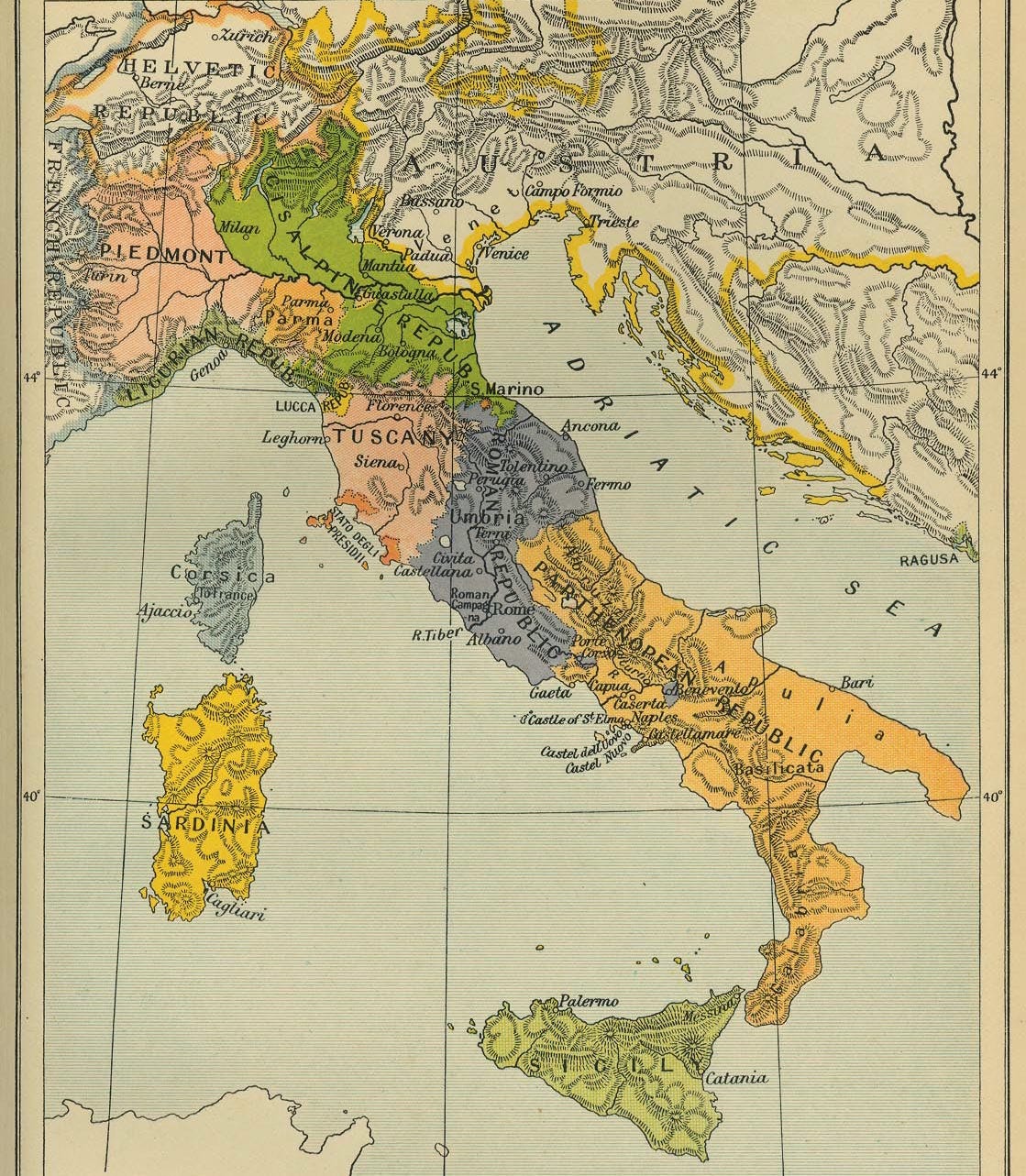When Napoleon Became King of Italy
The little-known event that forever changed the course of the Italian nation...
As the quintessential “Great Man” of history, perhaps only Julius Caesar can rival the fame Napoleon Bonaparte commands among the ranks of earthly princes.
That fame is inseparable from the knowledge that, as emperor, Napoleon brought nearly all of Europe under his control, altering the continent in ways that far outlasted his brief time in power. The course of many nations shifted in response to his rise, but few more so than Italy — the land of his Corsican ancestors.
It is fitting, therefore, that Napoleon ruled not only as Emperor of the French, but as King of Italy. It was also the only royal title he chose to keep for himself, rather than assign to a relative, ally, or lieutenant.
Napoleon’s imperial coronation in Notre-Dame is an iconic moment in the history of the West, preserved in the vast canvas by Jacques-Louis David that now hangs in the Louvre. But his royal coronation in the Duomo of Milan, though one of the grandest spectacles of European ceremony, has largely faded from view.
Today, we explore how the fates of France and Italy converged on May 26, 1805, the day the ‘Little Corporal’ became a king. We’ll pull from primary sources to glimpse Napoleon’s day-to-day itinerary during his month in Milan, and consider how his coronation planted the seed for a movement that would long outlive him — and forever alter the fate of the Italian peninsula…
The Question of Italy - Setting the Scene
"The word 'Italy' is a geographical expression, a description which is useful shorthand, but has none of the political significance the efforts of the revolutionary ideologues try to put on it, and which is full of dangers for the very existence of the states which make up the peninsula."
Klemens von Metternich, Letter to the Austrian Ambassador to France, April 1847
Being a land that has long commanded the awe of the world, and long served as the stage of many of the people and events which have shaped it, Italy mesmerises as a country. Yet as a state, it deceives the unfamiliar visitor.
Something of an imposter on the map of Europe, the modern-day Republic of Italy has roots that go no deeper than living memory, conjured into being in 1946 following defeat in the Second World War. Before it, the Savoyard Kingdom of Italy was an equally artificial construct — proclaimed in 1861 when the former Kingdom of Sardinia, by a combination of coercion and military force, annexed its neighbours in the process today called the ‘Unification of Italy’.
Prior to the 19th century however, the territory of the modern Italian nation state was inhabited by a checkerboard of independent sovereign states, many of which had existed for many centuries — and in certain cases, such as the Kingdom of Sicily, the Papal States, and the Republic of Venice, the best part of a thousand years.
As the words of Klemens von Metternich above bluntly stated, while “Italy” was a widespread geographical expression, as a political concept it was highly polarising, increasingly inflammatory, and strongly associated with revolution and radicalism. It was an association made overt by the French Revolution and its bellicose fallout, as the campaigns of the young Napoleon Bonaparte — and indeed those which made him a household name in France — were waged in northern Italy, then the southern flank of the mighty Austrian Empire.
On the heels of those campaigns, land seized from Austria was reorganised into a French client state known as the Cisalpine Republic, whose flag, the progenitor of the modern Italian flag, was merely a recoloured French tricolore, replacing the blue with green. On the 26th January 1802, however, deputies of the Cisalpine Republic proclaimed a new state, the Repubblica Italiana. The man who had made her possible, Napoleon himself, would serve as her President.
Having Napoleon as head of state, however, soon raised unexpected questions. Chief among them, what happens when the president of a republic suddenly becomes a monarch?




